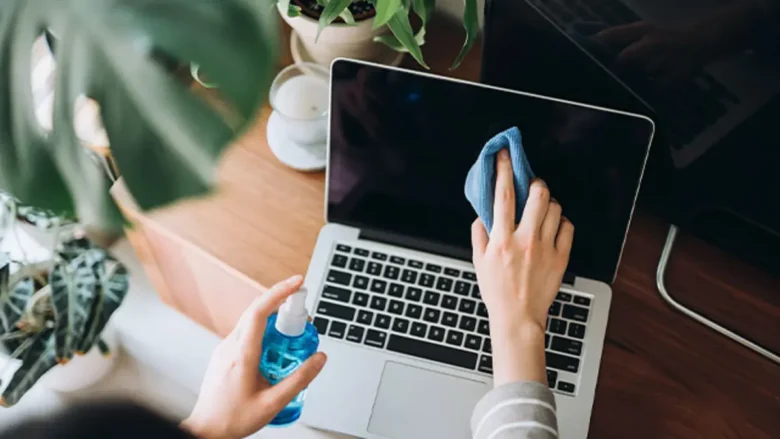In today’s fast-paced digital world, we rely on our smartphones for work, communication, and entertainment. To keep all your electronic devices—whether they’re smartphones, laptops, tablets, or wearables—running smoothly, they require proper care. Failing to maintain your computer can cause it to slow down, overheat, experience shorter battery life, or even cause data loss. That’s why it’s crucial to know how to maintain your devices. This extends their lifespan and ensures they perform impressively every day. In this article, we’ll discuss the best and most practical ways to maintain your devices, prevent common problems, and keep them running like new.
Update Software and Security Patches Regularly
Keeping your software up to date is one of the simplest, yet most important, ways to keep your device running smoothly. Operating system updates and security patches can resolve problems, improve your device’s performance, and better protect it from cyber threats. Many people ignore or postpone updates because they’re unaware that outdated software can make their devices more vulnerable to viruses or data breaches. It’s a beneficial idea to enable automatic updates so your system automatically installs upgrades without you having to do anything. Regular updates also ensure that your applications are compatible with the latest technical standards and features, so they run smoothly.
Clean your Device in Real Life and Online
Cleaning in real life is just as important as cleaning online. Dust, dirt, and fingerprints can accumulate on screens, keyboards, and ports, causing them to overheat or stop working. To safely remove dirt, use a microfiber cloth, compressed air, and a mild detergent. Cleaning your digital life is just as important. This means uninstalling unused programs, clearing caches, and organizing your data. If your storage is full, it can slow down your system and reduce its efficiency. Keeping both the physical and digital components of your device clean will make it more responsive and last longer.
Maintaining Your Battery and Extending Its Lifespan
One of the most common problems consumers encounter is battery aging. To keep your battery healthy, you should avoid overcharging and overheating or overcooling. Most modern electronic devices use lithium-ion batteries, which perform best when charged between 20% and 80%. Unplugging the charger immediately after a full charge prevents overheating and aging. Using a genuine charger and avoiding extended fast charging can also extend your battery’s lifespan. Calibrating your device monthly—fully charging and then fully discharging the battery—gives you a better indication of its charge.
Staying Security-Free
Your device is full of security risks, and one wrong click can compromise it. Installing reliable antivirus software and regularly scanning your computer can help you find and remove malicious files. Don’t download applications or files from untrustworthy sources, and don’t click on suspicious links. Use strong, unique passwords and two-factor authentication to keep your device even more secure. Regular data backups shield you from losing crucial files in the event of device infection or damage.
Improve Storage and Performance
When storage space is low, your device slows down. Regularly clear temporary files, uninstall unnecessary programs, and move large media resources to the cloud or an external device. Tools like disk cleanup and system optimization software can automatically find and remove duplicate files, freeing up space. Furthermore, reducing the number of background apps and startup programs can speed things up and save memory. Maximizing your device’s storage improves responsiveness and extends its lifespan.
Prevent Overheating
Overheating is a hidden killer of electronic devices. Place your laptop or desktop computer on a flat, well-ventilated surface. Use a stand or cooling pad to ensure excellent air circulation. Avoid using your device in high-temperature locations or exposing it to direct sunlight. Clean the vents regularly to prevent dust buildup and heat dissipation. Managing background processes and multitasking can also help prevent CPU overheating during prolonged use.
Regular Backups and Cloud Synchronization
By backing up your devices, you can prevent the loss of important information due to crashes, theft, or virus infections. Use online services like Google Drive, iCloud, or OneDrive for automatic backups. External hard drives are also ideal for offline storage. Syncing data between devices provides easy access and increased security. Setting up a weekly or monthly backup schedule saves time and ensures your files are safe and secure, making them simple to restore when needed.
Conclusion
Maintaining your devices isn’t just about cleaning them occasionally; it also means taking steps to protect your investment and ensure they perform better every day. To keep your electronic devices in excellent condition, you need to update them regularly, charge them properly, manage their storage, and protect them from digital threats. Well-maintained devices run faster, last longer, and cost less to repair or replace. Take a moment to perform these simple but effective maintenance tasks to ensure your smartphone, laptop, and tablet continue to function reliably for years to come. Maintaining your device now will keep it running smoothly and prevent future problems.
FAQs
1. How often should I update the software on my device?
Install software updates as soon as possible after they are released. Regular updates keep your device running optimally and prevent security breaches.
2. How can I effectively clean the screen of my laptop or smartphone?
Use a microfiber cloth and a small amount of screen cleaner or distilled water. Avoid alcohol-based solutions, as these can damage the screen coating.
3. How can I extend my device’s battery life?
Don’t overcharge the battery; keep the battery level between 20% and 80% and reduce screen brightness. Furthermore, disable unnecessary background functions and close unused programs.
4. Do I need antivirus software on all my devices?
Yes, especially internet-connected devices. Antivirus software can detect and eliminate potential risks that could compromise your data.
5. How often should I back up my data?
Depending on how often you create or modify files, weekly or monthly backups are a suitable option. Cloud backups are easy to use and offer additional protection thanks to real-time synchronization.




